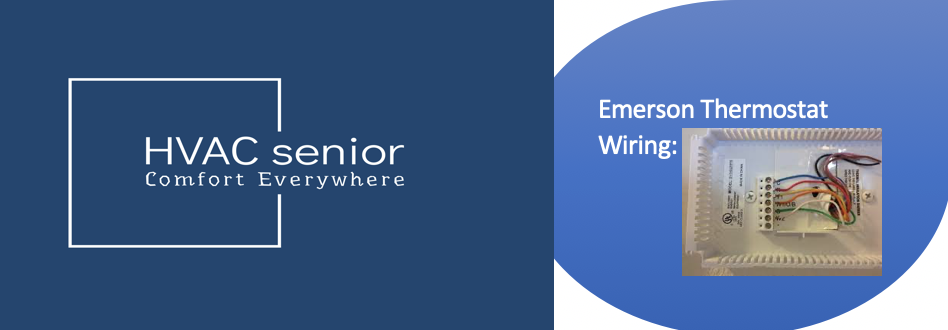As hot summer temperatures strike, air conditioners are a lifesaver. However, aside from cooling, many homeowners wonder: Do air conditioners also dehumidify the air?
The short answer is yes — all air conditioners naturally remove moisture from the air as part of the cooling process. However, how much humidity your AC can remove depends on the system type, size, and conditions in your home.
In this article, we’ll explore how ACs dehumidify, the science behind it, and what to do if your home still feels humid even with your air conditioner running.
How Air Conditioners Dehumidify Air
All air conditioners dehumidify as part of natural operation. Here’s the process step by step:
- Warm indoor air is drawn into the AC system through the return vents.
- The air passes over the evaporator coils, which are made up of cold refrigerant.
- As the hot air passes over the cold coils, water vapor in the air is condensed into liquid droplets.
- The built-up moisture drips off through a condensate line or drip pan.
- The cooled and dehumidified air is circulated back into your home.
It operates similarly when you pull a cold can of soda out of the refrigerator — water forms on the can because warm, humid air meets a cold object. Your AC coils work in the same way.
How Much Humidity Does an AC Remove
Most central air conditioners will remove indoor humidity by 30% to 50%, which is ideal comfort level for humans and for preventing mold or mildew.
But the amount of moisture removal will depend on several factors:
- Outdoor temp and humidity
- Your AC unit size and capacity
- Duration of cycle (run time)
- Airflow velocity
- Condition of your coils and filters
If your system is shutting off too quickly (because you have too big of a system), it may not run long enough to remove enough humidity. Conversely, an undersized unit won’t remove enough moisture when cooling.
Also read: Why an AC Liquid Line Would Be Cold
Why Humidity Control Matters
High indoor humidity doesn’t just make you feel gross — it causes real problems for your home and health.
Side Effects of High Indoor Humidity
- Slick, heavy air that feels warmer than it really is
- Mold, mildew, and musty odors
- Condensation on windows and walls
- Respiratory distress or allergic responses
- Destruction of paint, wood flooring, and furniture
Best indoor humidity should range between 40% to 50% for comfort and health. Humidities above 60% can sustain mold growth and dust mites.
Signs Your Air Conditioner Isn’t Dehumidifying Properly
While air conditioners are designed to dehumidify, sometimes they fail to perform their function. Be attentive to these signs:
- Air feels clammy or damp even when it is within an air conditioner
- Windows or vents have condensation
- Musty smell from walls or ducts
- Protracted cooling cycles without achieving comfort
- Mold or mildew on or close to vents
If you are witnessing these symptoms, your AC might be oversized, faulty, or dirty, and all of them inhibit its dehumidification capability.
Causes of Poor Dehumidification
These are the most common reasons why your air conditioner is not pulling enough moisture from the air:
1. Oversized Air Conditioner
A too-large unit over-cools your space. This causes short cycles — the compressor cycles off too early to really dehumidify the air.
Solution:
Get an HVAC professional to perform a Manual J load calculation to correctly size your AC for your home.
2. Dirty Coils or Air Filters
Dust and dirt on evaporator coils act as an insulation, preventing warm air from reaching close to cold coil surface — preventing condensation and dehumidification.
Solution:
Clean or change filters monthly and have coils cleaned professionally annually at a minimum.
3. Low Refrigerant Levels
When the AC is running low on refrigerant, the coils will not cool enough to condense moisture effectively.
Solution:
Call a professional HVAC tech to check refrigerant pressure and fix leaks before recharging.
4. High Fan Speed
If your blower fan is on high, air moves over the coil too quickly for condensation to take place — so less moisture is extracted.
Solution:
Ask your technician to adjust fan speed for better humidity control.
5. Extremely Humid Climate
In tropical or coastal areas, the humidity level may be higher than an average AC can handle on its own.
Solution:
Use a whole-house dehumidifier or a stand-alone dehumidifier along with your air conditioner for optimal comfort.
Do Window and Portable ACs Dehumidify Too?
Yes — even window and portable air conditioners remove humidity while cooling, although to a smaller extent.
- Window ACs will typically remove 0.5 to 2 liters of moisture per hour.
- Portable ACs typically come with a condensate tank or drain hose to hold the water.
But portable units in very humid environments get filled quickly and require frequent draining.
Air Conditioners vs. Dehumidifiers: How They Compare
Both remove moisture, but they do it differently — and for different purposes.
| Feature | Air Conditioner | Dehumidifier |
| Primary Function | Cooling + moisture removal | Moisture removal only |
| Ideal Humidity Range | 40–50% | 30–50% |
| Air Output | Cool air | Warm air |
| Energy Use | Higher (for cooling) | Lower |
| Best For | Warm, humid climates | Damp basements or storage areas |
If your AC keeps your home cool but still feels damp, pairing it with a dehumidifier can balance comfort and energy efficiency.
Benefits of Proper Dehumidification
When your air conditioner successfully controls humidity, you’ll notice improvements in comfort, health, and system performance.
✅ Better Comfort: Air feels cooler and lighter, even at higher thermostat settings.
✅ Improved Air Quality: Less mold, mildew, and allergens.
✅ Lower Energy Costs: You can raise the thermostat a few degrees without any discomfort.
✅ Longer AC Life: Less over-cycling wear and tear.
Ways to Get Your AC to Work More Efficiently as a Dehumidifier
If your air conditioner is not extracting enough moisture, make these simple adjustments to make it work better.
1. Clean Filters
Dirty filters reduce airflow and cause humidity to build up. Replace or clean filters every 30–60 days.
2. Use the “Auto” Fan Mode
Avoid “On” mode, which keeps the fan running constantly and can circulate water back into your home. Opt for “Auto” so the fan will shut off when cooling isn’t needed.
3. Employ Proper Airflow
Leave vents and registers free from furniture, rugs, and curtains.
4. Seal Air Leaks
Check windows and doors areas — leaks bring humid air in and make your AC work harder.
5. Schedule annual maintenance
A yearly tune-up keeps coils clean, refrigerant in check, and parts running efficiently.
When to Install a Standalone Dehumidifier
If there is humidity that still lingers after a tune-up, it may be time to have a standalone dehumidifier installed.
- Whole-house dehumidifiers connect to your HVAC system and control the humidity automatically.
- Standalone dehumidifiers work best on basements, bathrooms, or small, damp spaces.
These devices augment your AC, causing it to cool better and last longer.
Also read: No Condensation from AC.
FAQ: Air Conditioners and Dehumidification
1. Do air conditioners always dehumidify?
Yes, all air conditioners naturally remove humidity as part of the cooling process.
2. Why does my AC leave my home feeling damp?
Your unit may be oversized and running too quickly to remove enough moisture.
3. How much water will an air conditioner remove?
Depending on humidity, a typical AC removes 0.5 to 2 gallons of moisture per hour.
4. Do inverter air conditioners dehumidify more effectively?
Yes. Inverter ACs run longer at low speeds, allowing more sustained dehumidifying.
5. Will my air conditioner function in “dry mode”?
Yes, splits and inverter ACs usually include a Dry Mode, which is designed to draw out moisture instead of cooling — perfect for steamy days.
Final Thoughts
So, do air conditioners dehumidify? Absolutely. All AC units remove moisture from the air as it’s cooled, making a home a more comfortable place to reside.
But your system’s ability to regulate humidity is up to the size of your system, maintenance, and how you use it. If your house is still humid, check for blockage of airflow, incorrect system size, or improper installation of a dehumidifier for extra moisture control.
Balanced humidity is more than just about comfort — it also defends your home, your health, and your cooling system’s efficiency.









